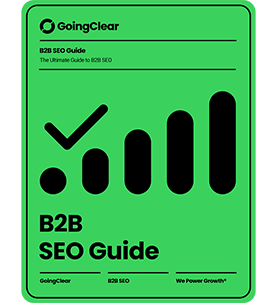What Is Thin Content & How Word Count Impacts Rankings

Marketing content creators have always had a challenging relationship with search engines. Even the best writers are constantly challenged by the ever-evolving search algorithms and methods for assessing website content quality. A major shift in the last few years has been search engines’ focus on quality over quantity when it comes to optimizing content for search engine ranking performance. Whereas the strategy used to be to stuff as many keywords onto a page as possible and post slightly modified versions of the same content on multiple internal links, we’ve luckily seen a shift in the algorithms focusing more well-written and well-structured content.
As our efforts in content creation shift from pumping out articles at volume to creating high-quality SEO-focused articles, we run the danger of creating content that is not informative enough. This “thin content” can cause significant problems for your SEO and have serious negative impacts on your inbound marketing funnels overall.
To help our readers better understand the impact of thin content, we first have to give an overview of how search engines function. Once we show you how websites are read and ranked by search engines, we can go more into detail on how thin content impacts that process and how to fix it so that your customer experience doesn’t suffer from malnutrition.
How Search Engines Read Your Page
The average user doesn’t have to worry about how the content they’re looking for is created–online users can simply hop onto their digital device of choice, log into a search engine like Google, Yahoo, Bing, or DuckDuckGo, and type in your search topic and go.
As content marketers, though, we know that a thousand processes are going on behind the scenes working towards three core goals: crawl the web, index the content, and rank the page.
Web Crawlers
Initiating the search, the user sets into motion a swarm of web crawlers, which are specialized programs designed to automatically search through documents across the Internet, gathers the data it’s been tasked to gather, and then puts it aside for subsequent processing. Web crawlers keep track of certain metrics that become important later in the process such as the size of the files being assessed, the time it takes to read and extract data from the page, and how well the content fits the search parameters. To accomplish these tasks, the crawler accesses each URL, pulls the links from the primary page, then performs the same iterative task on each sub-URL, pulling the data relevant to the search from each unique URL as it goes. Designers who are savvy to this process will include a site map and other metadata to make this process more efficient.
Indexing Content
Once all of the data from a web page has been crawled, the data is passed up the line to a layer in the search process that now indexes the data according to relevance. The indexing process is essentially a detailed summary of your page relative to the search parameters set by the user. At this level, websites with high quality and relevant content relative to the search parameters will present as a more detailed and complex index file than pages that aren’t as relevant to the search.
Page Ranking
Once the search engine has indexed all relevant pages, the algorithm compares and assesses the index values and assigns each page a ranking. While content managers understand that certain factors impact this process and spend significant amounts of time optimizing pages and content to improve page ranking, the search engine algorithms and ranking parameters are kept largely confidential by the search engine creators.
Why Your Content Appears Thin to Google
While little is truly known about the search engine algorithms, what we do know is that certain updates in the last few years have had very specific impacts on page rankings. One of the most influential was Google Panda, which started to penalize pages in search results that it considered having low-quality content. Developers found that even pages with the strongest SEO metadata and formatting were performing poorly and over time traced the poor rankings back to poor quality writing and uninformative content that didn’t add value for the reader.
In the last year, this concept of adding value to your marketing content has become even more important as users are specifically seeking out brands that provide solutions to specific problems and include content that is informative and helpful. Other patterns emerged that have helped us determine other factors causing page content to be considered “thin” by search engine standards:
- Short-form content. Depending on the industry, topic, and platform, articles over 1000 words seem to perform better than articles less than 500 words.
- Unoriginal content, especially content found on other websites.
- Uninformative filler content that doesn’t serve a purpose or cover the topic, especially if the writer also peppers the content with keywords in no meaningful way.
- Poorly written content with bad grammar and punctuation.
How Thin Content Impacts the User Experience
Your SEO content ranking will suffer if your webpage is considered to be too thin. You can do irreparable damage over time if you’ve focused your marketing budget on creating an extremely high-quality and effective inbound marketing strategy, only to have page visitors bouncing off of your page almost immediately due to poorly crafted thin content.
Users who do visit your page might even start providing negative reviews of your site, leading to reduced traffic over time. Over time, the ranking tools and data analytic trackers will start to notice that user time-on-page is low and your bounce rate high, and you’ve got almost zero click-through rate to speak of. To make matters worse, you’ll find it difficult, if not impossible, to create organic backlinks, as other websites will not consider your page authority on topics relevant to your industry. Together, all of these things will leave your page performing extremely poorly in search engine results.
Boost Your Word Count To Avoid Thin Content Penalties
Partnering up with our team at GoingClear gives you an advantage over the competition across Boston and beyond. Their mediocre thin content won’t stand a chance against the beefed-up, meaningful, and relevant marketing content our team will craft for your brand. Give your readers the content they want, or learn more about our full range of marketing services.

